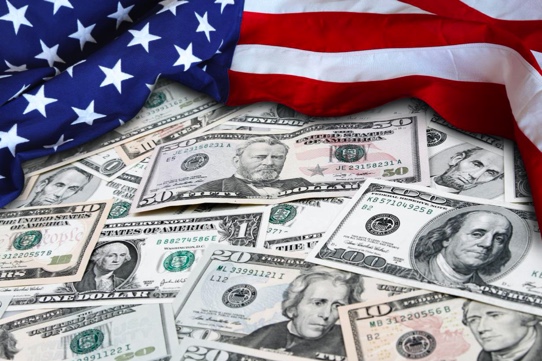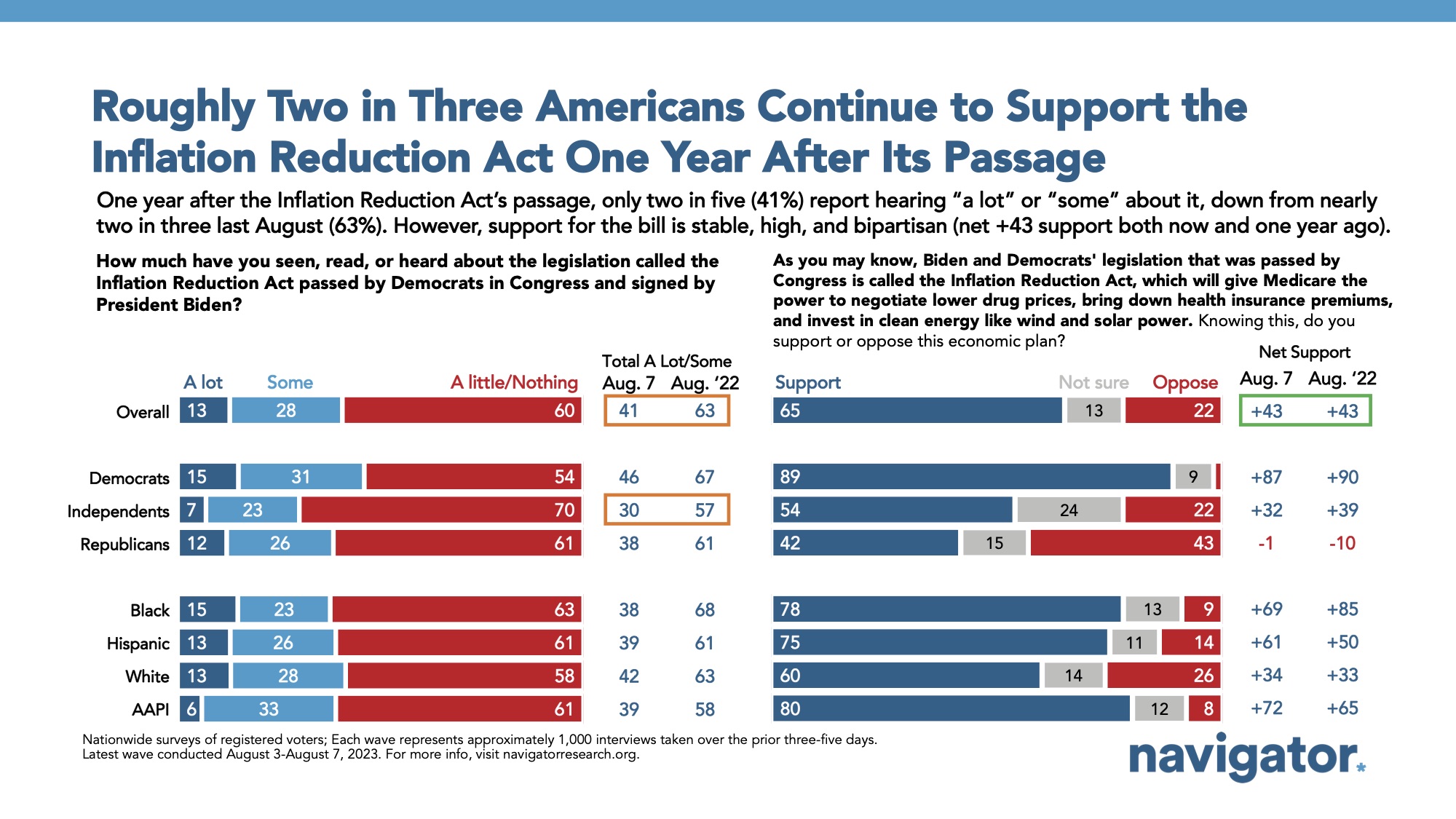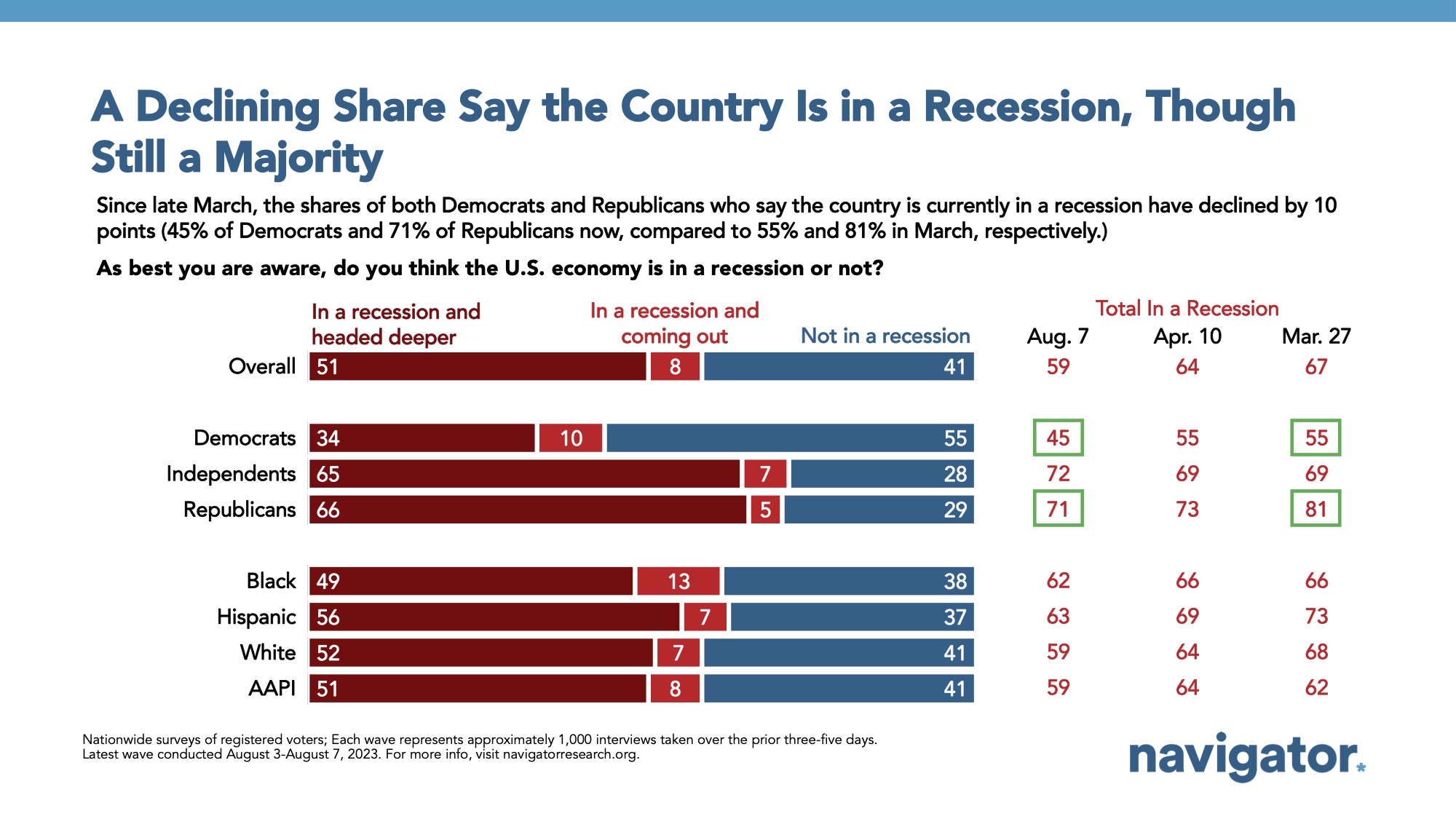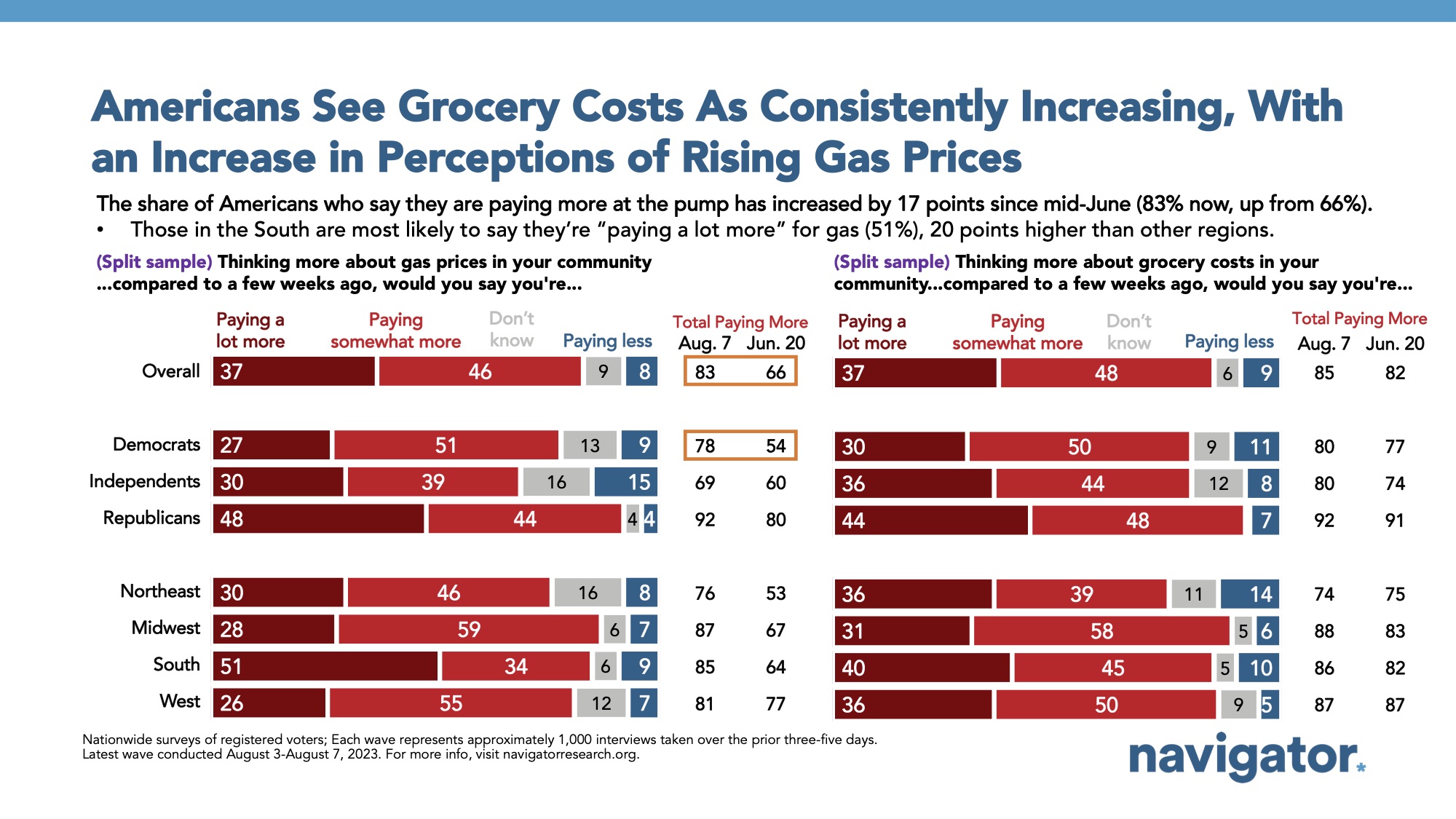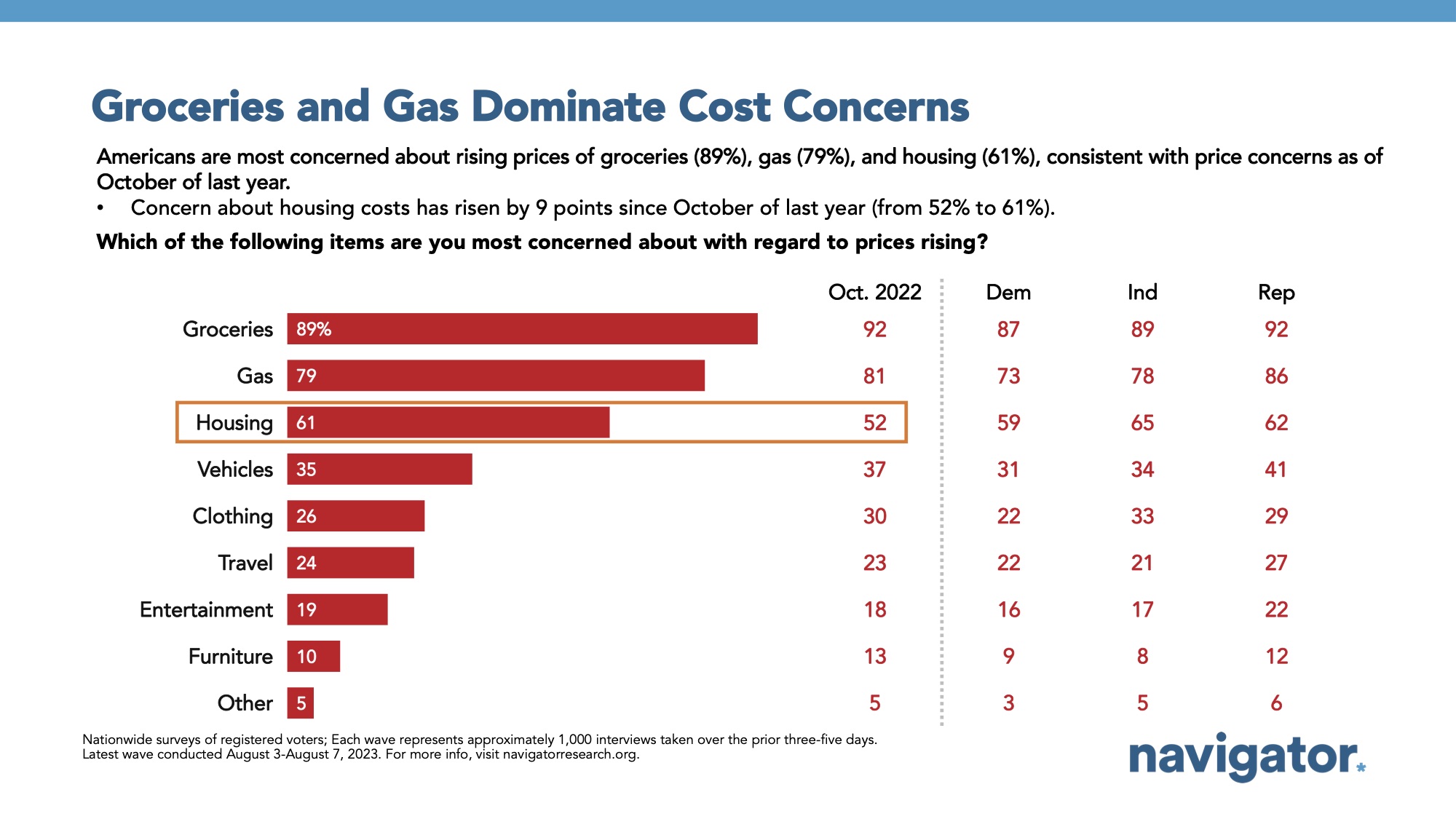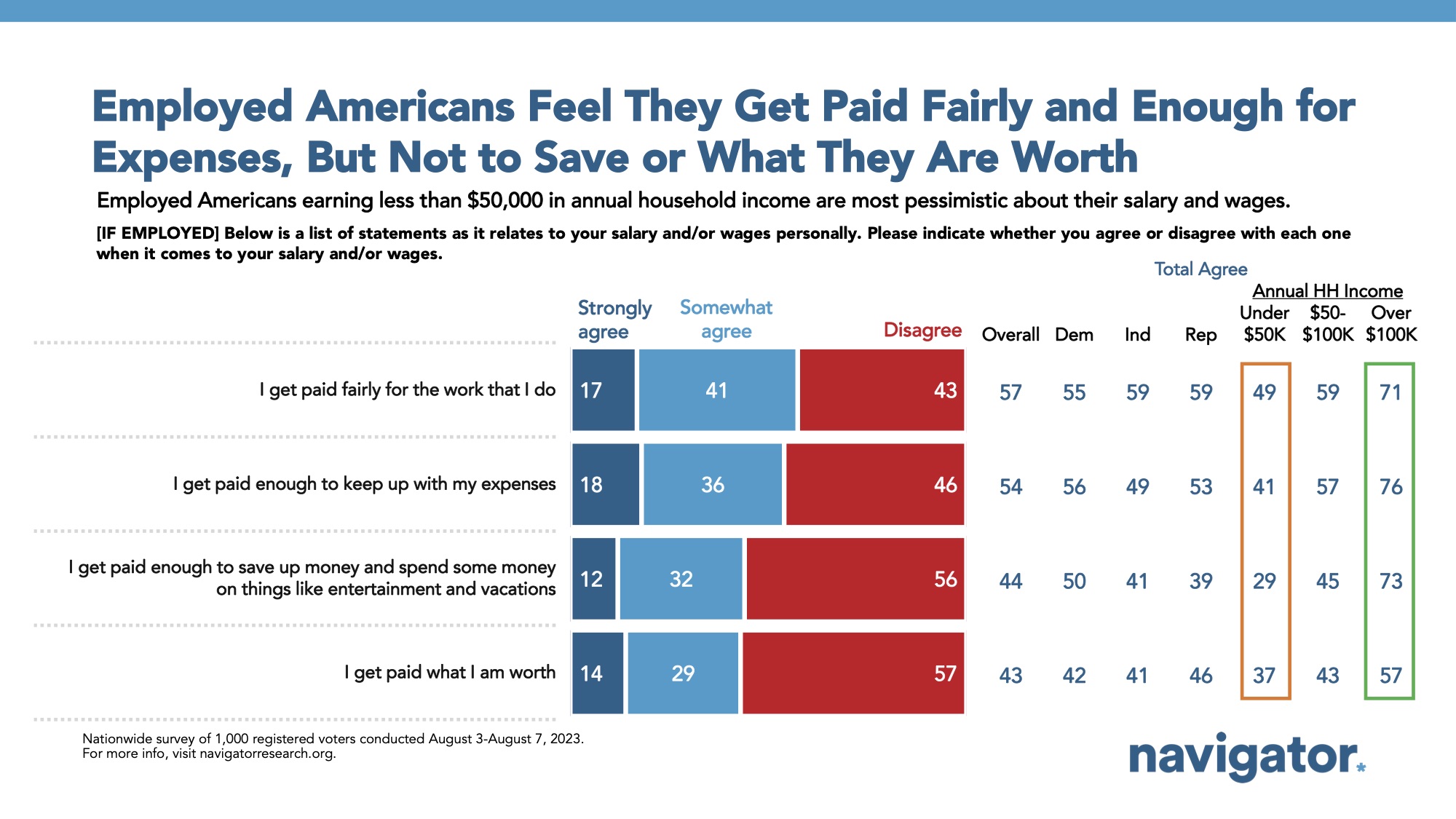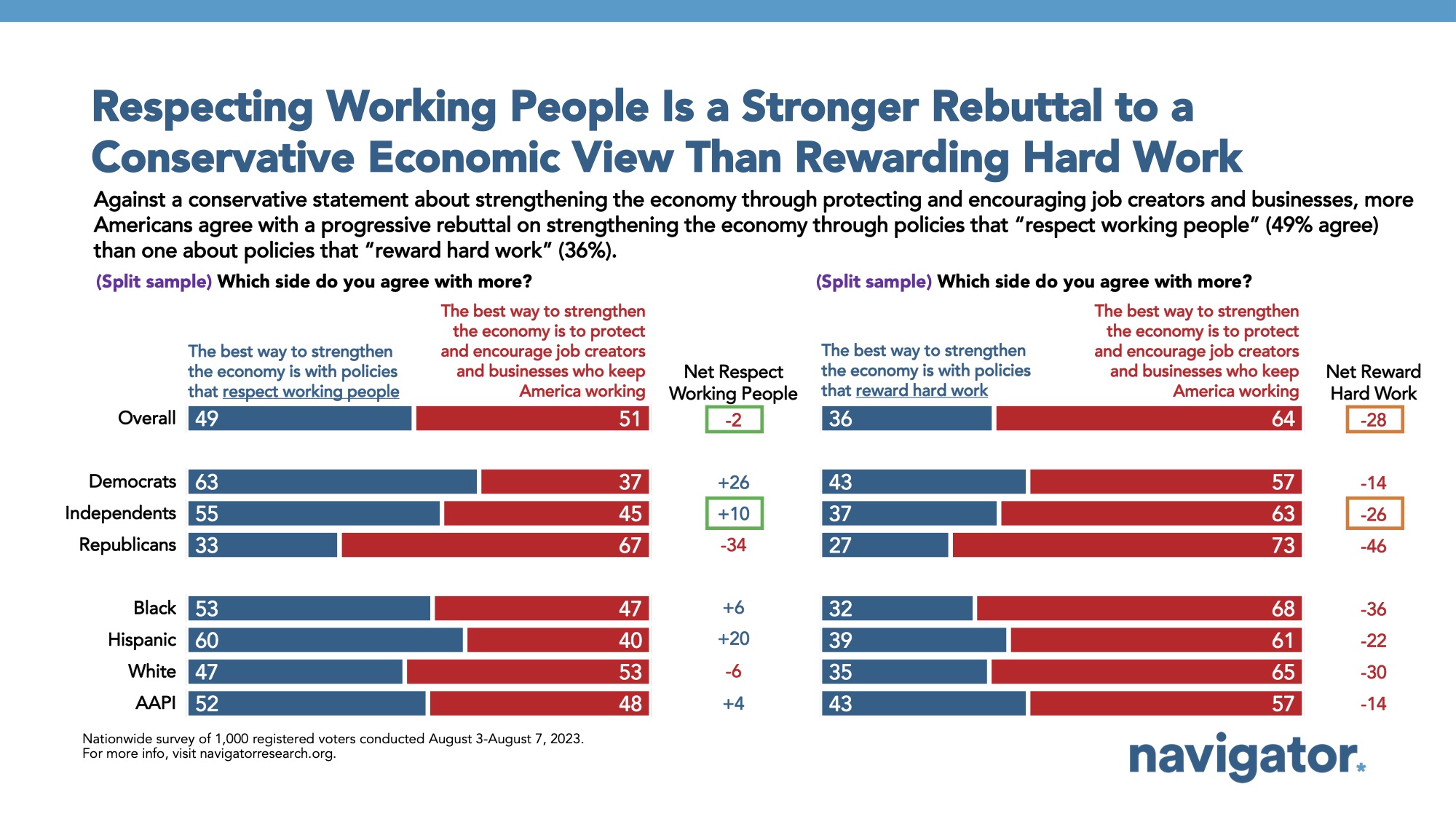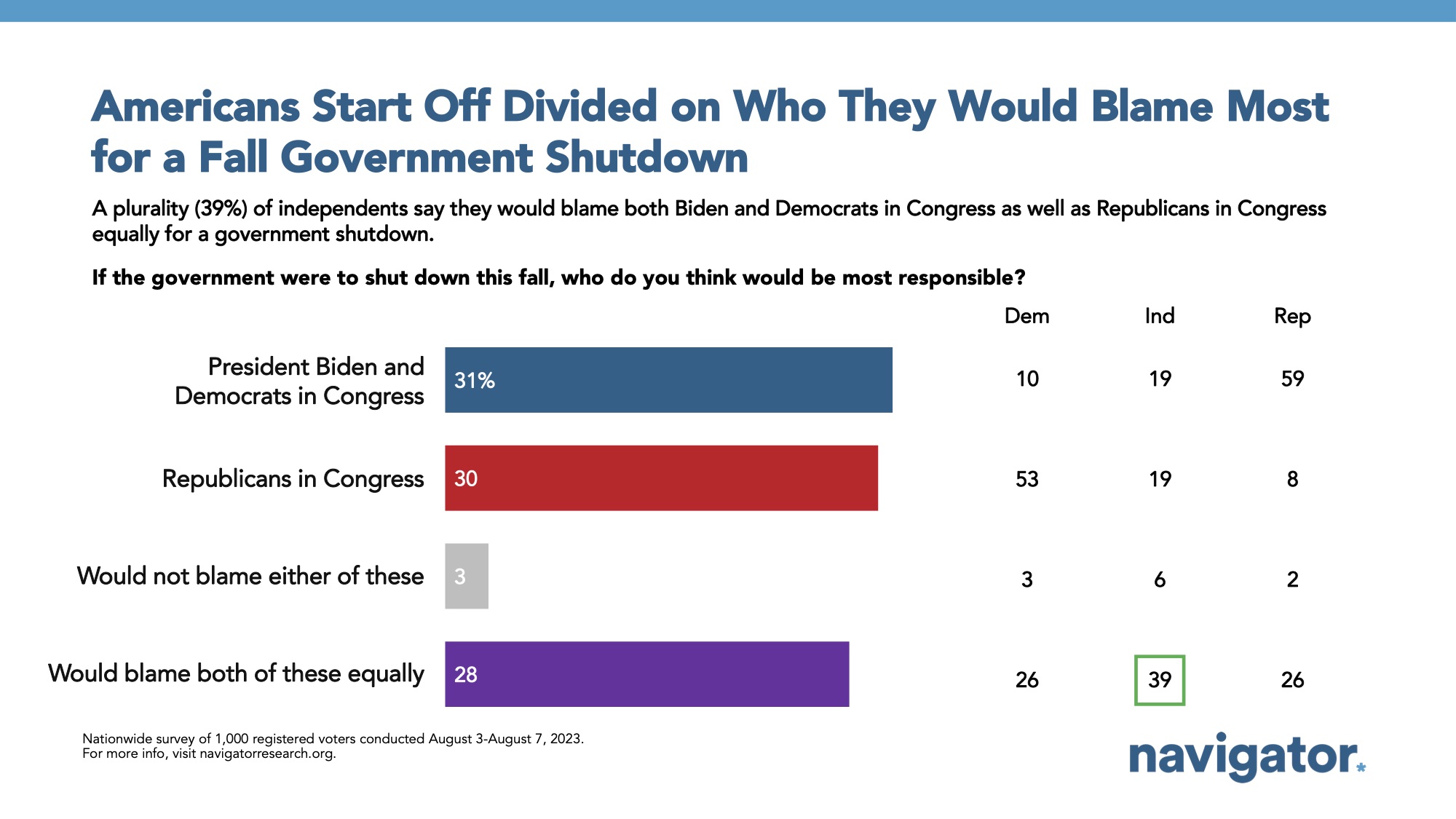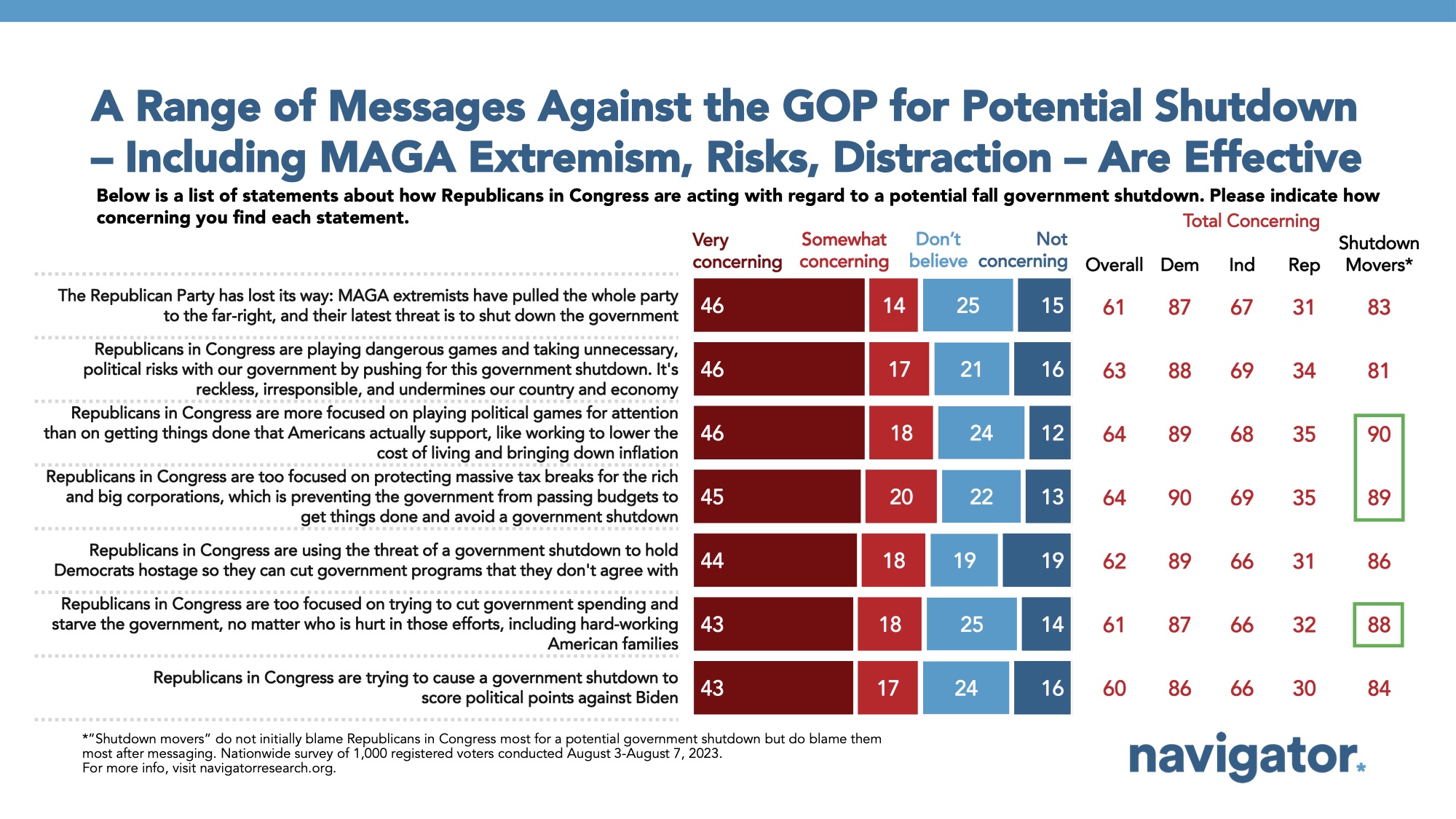One Year After Passage, the Inflation Reduction Act Maintains Broad Support
This Navigator Research report contains polling data on how Americans view the Inflation Reduction Act one year after its passage; perceptions of the economy, including how much people feel they are paying for everyday goods and whether they think their wages are keeping up with their expenses; and, assessments of a possible government shutdown in fall, including who the public is most likely to blame if one occurs and the top concerns Americans have about the way Republicans are acting regarding a potential shutdown.
The Inflation Reduction Act remains broadly supported a year after its passage, though fewer Americans are hearing about the legislation.
Ahead of the first anniversary of the Inflation Reduction Act being signed into law by President Biden, two in three Americans continue to support it. By a 43-point margin, 65 percent of Americans support the Inflation Reduction Act when described as legislation passed that “will give Medicare the power to negotiate lower drug prices, bring down health insurance premiums, and invest in clean energy like wind and solar power,” including one in three who “strongly” support the legislation (35 percent); only 22 percent oppose it. Support is strong across partisanship including among nine in ten Democrats (89 percent), a majority of independents (54 percent), and more than two in five Republicans (net -1; 42 percent support – 43 percent oppose). This level of support is virtually identical to the level of support for the Inflation Reduction Act in August 2022 when the law passed through Congress (net +39; 65 percent support – 26 percent oppose).
- Despite high levels of support, a decreasing proportion of Americans report having either seen, read, or heard about the legislation (41 percent), which is down 10 points from mid-March of this year (51 percent). Only three in ten independents report seeing, reading, or hearing anything about it (30 percent).
Most Americans think the U.S economy is in a recession; however, the share has been declining since mid-March.
59 percent of Americans think the U.S economy is in a recession, including 51 percent who believe it’s headed deeper into a recession and an additional 8 percent who believe while we’re coming out of a recession. This is a 7-point decline from mid-March when two in three believed the economy was in a recession (66 percent). Three in five Americans feel uneasy about the state of their personal financial situations (62 percent), with uneasiness concentrated among Americans living in households earning less than $50,000 per year (28 percent confident – 68 percent uneasy) compared to those living in households earning more than $100,000 per year (49 percent confident – 48 percent uneasy).
- Inflation and jobs and the economy remain top of mind as nearly half of Americans believe both should be top issues for Congress to focus on (49 percent and 44 percent respectively). Lower shares believe that the parties are focused on these issues: Republicans in Congress are seen as most focused on conducting oversight into the Biden Administration (49 percent) while only 30 percent say they’re focused on inflation and 26 percent say they’re focused on jobs and the economy; Democrats in Congress are seen as most focused on climate change and the environment (39 percent) while only 28 percent say they’re focused on jobs and the economy and 24 percent say they’re focused on inflation.
- Americans are most concerned with the rising costs of groceries (89 percent), followed by gas (79 percent), housing (61 percent, up 9 points since last October), with less concern in regards to travel (24 percent), and entertainment (19 percent).
- 85 percent of Americans feel they are paying more for groceries compared to a few weeks ago, among whom 37 percent feel they are paying “a lot” more. 83 percent who feel they are paying more for gas in their communities compared to a few weeks prior (37 percent “a lot” more). Pressure on gas prices is felt most intensely in the South (51 percent they’re paying “a lot” more) while the share is only about 30 percent in all other regions.
A majority of working Americans feel they get paid fairly for the work they do, but this sentiment is felt very differently across income levels.
57 percent of employed Americans agree with the statement “I get paid fairly for the world that I do,” but agreement is concentrated among those living in households earning more than $100,000 per year (71 percent agree) while those in households making less than $50,000 per year are split (49 percent agree). This is also true among the share who feel that they get paid enough to keep up with their expenses (54 percent agree overall; 76 percent agree in households earning more than $100,000 and only 41 percent agree in households earning less than $50,000 per year).
- However, fewer employed Americans feel they are paid what they are worth (net -14; 43 percent agree – 57 percent disagree), as the share is even smaller among Americans living households earning less than $50,000 per year feel the same (37 percent agree – 63 percent disagree).
- In a split-sample experiment testing different progressive arguments on the best way to strengthen the economy against a conservative argument that the best way “is to protect and encourage job creators and businesses who keep America working,” the argument that “the best way to strengthen the economy is with policies that respect working people” (net -2; 49 percent progressive argument – 51 percent conservative argument) performed significantly better than the argument that “the best way to strengthen the economy is with policies that reward hard work” (net -28; 36 percent progressive argument – 64 percent conservative argument).
Americans start off divided on whom they would blame if the government were to shut down this fall.
Americans are nearly evenly split between which party they would find most responsible if the government were to shut down this fall (31 percent Biden/Democrats in Congress – 30 percent Republicans in Congress – 28 percent blame both equally), with a plurality of independents either blaming both parties equally (19 percent Biden/Democrats in Congress – 19 percent Republicans in Congress – 39 percent blame both equally – 17 percent don’t know enough to say). Blame for a shutdown is largely driven by partisanship: 53 percent of Democrats say they would blame Republicans in Congress, while 59 percent of Republicans say they would blame President Biden and Democrats in Congress.
At least three in five Americans find a range of critiques about how congressional Republicans’ are acting regarding a potential government shutdown to be concerning.
The most concerning statement overall and among independents is: Republicans in Congress are more focused on playing political games for attention than on getting things done that Americans actually support, like working to lower the cost of living and bringing down inflation” (64 percent concerning, including 46 percent “very” concerning; 69 percent of independents find this concerning). Other concerning statements include:
- Republicans in Congress are too focused on protecting massive tax breaks for the rich and big corporations, which is preventing the government from passing budgets to get things done and avoid a government shutdown (64 percent concerning, including 45 percent “very” concerning);
- Republicans in Congress are playing dangerous games and taking unnecessary, political risks with our government by pushing for this government shutdown. It’s reckless, irresponsible, and undermines our country and economy. (63 percent concerning, including 46 percent “very” concerning); and,
- Republicans in Congress are using the threat of a government shutdown to hold Democrats hostage so they can cut government programs that they don’t agree with” (62 percent concerning, including 44 percent “very” concerning).
